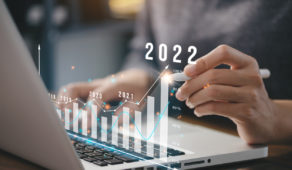Read the full article on Greenbook
Artificial intelligence is top of mind with virtually every marketer, even if many practitioners don’t believe they understand it. In their report “Artificial Intelligence for Marketers 2018: Finding Value Beyond the Hype” eMarketer reported that it is still early days for adoption, but “AI technologies — including machine learning, deep learning, natural language processing and computer vision — are starting to show real promise, despite significant hype and confusion in the marketplace. . . the majority of global business executives who have implemented AI said it has resulted in new insights and better data analysis, as well as more creative organizations that make better management decisions.”
And it makes sense why AI is suddenly in the spotlight these days. We’re at an once-in-a-generation convergence where all the pieces to extract the benefits of AI are coming together. There is an overabundance of data – with people living digitally mediated lives; there is an incredible amount of open source AI tools available for anyone to use (ie tensorflow); and the infrastructure necessary for AI computation is getting cheaper and easier to implement (ie AWS). Now a handful of data scientists at any company can gain business impact using AI in a couple of days, compared to a couple of months and millions in investments just a few years back. And with larger and larger data sets, it is the only practical tool to make sense of insights that are buried in the under the sheer weight of consumer observations.
But what really is AI, and how can it be applied to marketing and research? Are market researchers prepared to understand what it can and can’t do?
One of the fundamental difference for market research starts from the type of data being analyzed: traditional market research relies heavily on behavior that is reported via quant or qual surveys, whereas applications of AI for marketing, as applied to generating insights, are based on observed event-level behavior.
But just because there is a lot more data doesn’t mean an AI solution can be immediately implemented. AI-based solutions work best when we know the problem we are trying to solve – a goal that we are aiming for – so we can then build an AI-solution that optimizes towards that goal. In the case of market research, it could be defining unbiased consumer segments based on people who are most likely to purchase a product, visit a physical or online store, or interact with some marketing touchpoint.
The knowledge required to properly tune AI-models for these specific market research use-cases also requires years of domain expertise. There is no such thing as a one-size-fits-all AI solution and any company who says they do it is probably not being completely honest about their capabilities. Market Research professionals are wising up to this and kudos to them for calling it out.
In the recent Research Live post dubbing “AI” the word of the year, Annie Pettit, research methodologist weighed in, “This year, services using basic text searches, linear algorithms, or higher level predictive functions have rebranded or changed their marketing strategies to promote themselves as artificial intelligence. As such, we are currently in a state of buyer beware when it comes to AI. Buyers should ask detailed questions, insist on speaking to the engineers behind the products, and find out whether you’re paying for AI or for marketing.”
Tom Ewing, head of communications, at the UK based System1 Group, shared his cautionary POV: “(AI) … can mean anything from the genuinely uncanny to ‘we have a chatbot’. AI and machine learning are going to change research, but a lot (not all!) of the conversation about it is frustratingly unspecific.”
We couldn’t be happier that AI, Machine Learning and Data Science are assuming their rightful place as tools to generate actionable consumer insights. Dstillery has been a data science company for almost 10 years, first as applied to the optimization of media (where we’ve gained years of domain expertise that allows us to create AI solutions perfectly tailored for market research research applications), now applied to many other decision support applications involving discovery and activation of new customers.
As experienced data scientists, we can be highly specific about the kind of insights that can be revealed through AI, machine learning and data science. Data scientists know the difference between the hype and the authenticity of these tools. The application of AI is yielding rich insights about consumers’ journeys and “paths to purchase” based on geo spatial data, browser data and consumer’s interactions with online content. When marketers can analyze vast amounts of actual observed behavior, rather than rely on relatively small amounts of reported behavior coming from surveys, insights can be revealed answering questions marketers didn’t even know to ask.
Most assuredly Buyers need to be confident that their trusted advisors for Data Science are competent, experienced, credentialed professionals who are were born data scientists. Buyers should beware of MR practitioners, however skilled in traditional qual and quant research methodologies, who have simply appliqued this current buzzword of AI to their older offerings, and called themselves experts in “data driven insights”. Even those in the facet of the MR business focused on text analytics and social media monitoring don’t necessarily have the expertise to advise on the full potential of data science to transform the world of MR.
Insights professionals, at consultancies and supplier partners, need to understand just what these tools can do and how they can complement services they will continue to offer. We predict marketers and their research suppliers will look for explanations and examples, in plain English, that reveal the ROI for deploying machine learning and AI solutions.
AI isn’t magic. However, it does have the ability to completely revolutionize an industry that hasn’t had major technological advancements in almost a decade.
In the hands of skilled data scientists, with domain expertise, it can provide new ways of finding meaningful and actionable stories, discovering new unique consumer audiences and helping companies drive brand growth.
Once the power of AI is de-mystified and better understood, we predict it will become the preferred method for brands for generating insights and understanding consumer behavior.

